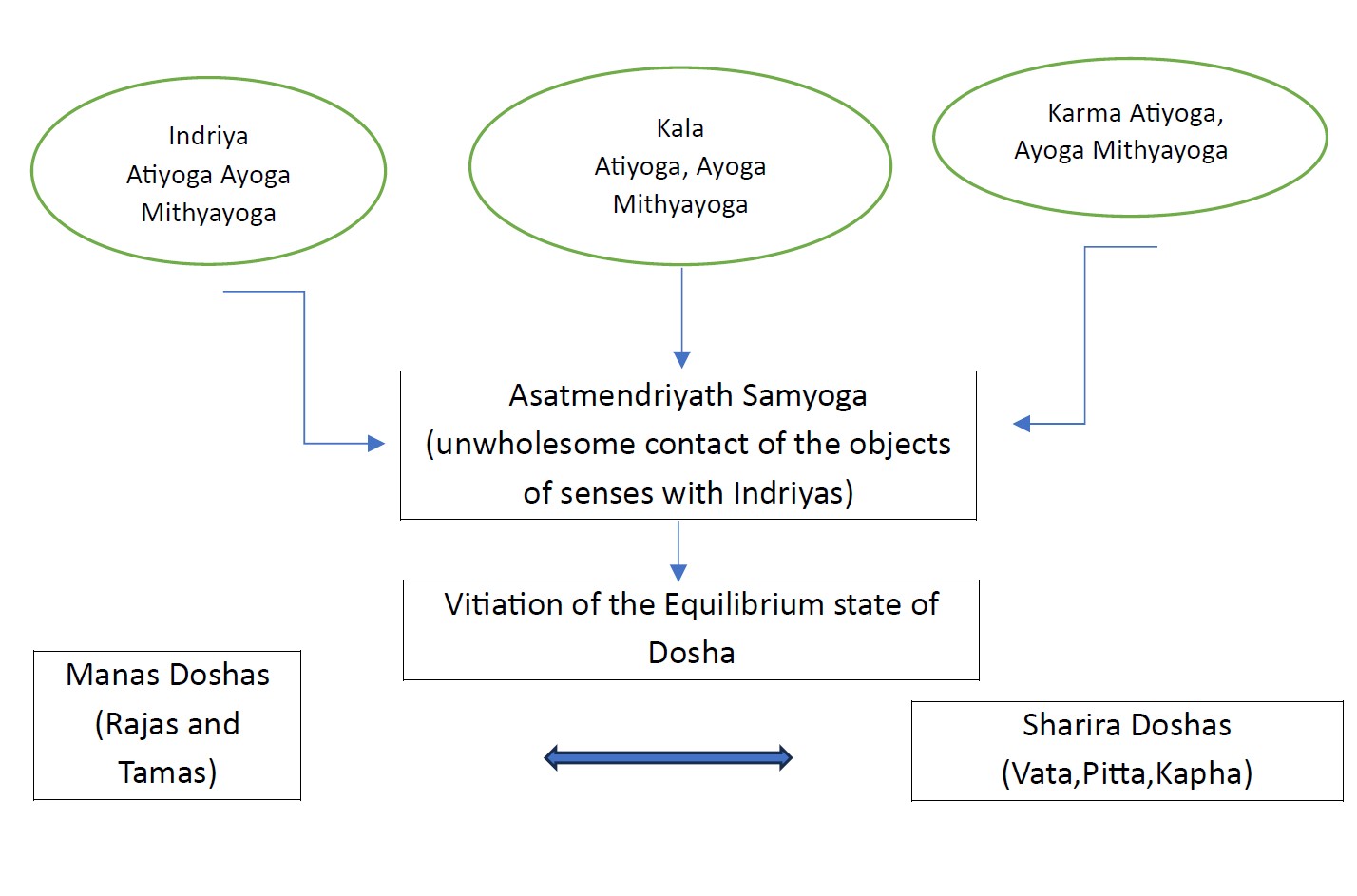Exploring the Role of Ayurveda in Mental Health: A Comprehensive Review
DOI:
https://doi.org/10.21760/jaims.8.5.12.Keywords:
Ayurveda, Mental Health, Rasayana, SadvruttaAbstract
Ayurveda, the ancient system of medicine originating in India, offers a holistic approach to health and well-being by emphasizing the balance between body, mind, and spirit. This comprehensive review explores the role of Ayurveda in promoting mental health, examining classical texts, therapeutic practices, and recent scientific research. Central to Ayurvedic mental health care is the concept of Sattva (mental clarity), and the balance of the Tridoshas - Vata, Pitta, and Kapha - which are believed to influence psychological states. The review highlights key Ayurvedic interventions including Medhya Rasayanas (nootropic herbs), Panchakarma therapies, lifestyle modifications, and dietary practices tailored to individual constitution (Prakriti). It also discusses the integration of yoga and meditation as complementary tools for emotional regulation and stress management. Emerging evidence supports the efficacy of Ayurvedic approaches in managing anxiety, depression, and other mental health conditions, although further rigorous clinical trials are necessary. This review underscores the potential of Ayurveda as a valuable adjunct in contemporary mental health care, advocating for an integrative model that bridges traditional wisdom with modern psychiatric practices.
Downloads
References
World Health Organization. Mental health: strengthening our response [Internet]. Geneva: WHO; 2022 [cited 2024 Oct 27]. Available from: https://www.who.int/news-room/fact-sheets/detail/mental-health-strengthening-our-response
Sushruta. Sushruta Samhita. In: Yadavji Trikamaji V, editor. Varanasi: Chaukambha Surbharti Prakashan; 2008. Sutra Sthan, chapter 15, verse 41.
Trikamaji Y, editor. Charaka Samhita of Charaka: Ayurveda Deepika of Chakrapani [Commentary]. Varanasi: Chowkhambha Sanskrit Series; 2006. Shareersthana, chapter 1, verse 98.
Trikamaji Y, editor. Charaka Samhita of Charaka: Ayurveda Deepika of Chakrapani [Commentary]. Varanasi: Chowkhambha Sanskrit Series; 2006. Shareersthana, chapter 1, verse 102.
Trikamaji Y, editor. Charaka Samhita of Charaka: Ayurveda Deepika of Chakrapani [Commentary]. Varanasi: Chowkhambha Sanskrit Series; 2006. Sutrasthana, chapter 25, verse 40.
Vagbhata. Astanga Hridayam. In: Murthy Srikantha, editor. Varanasi: Krishnadas Academy; 1995. Vol. I. Sutrasthana, chapter 4, verse 24, p. 221.
Ghadekar BG. Vaidyakiya Subhashita Sahityam. 2nd ed. Varanasi: Chaukhamba Prakashan; 2018. Chapter 2, verse 45.















